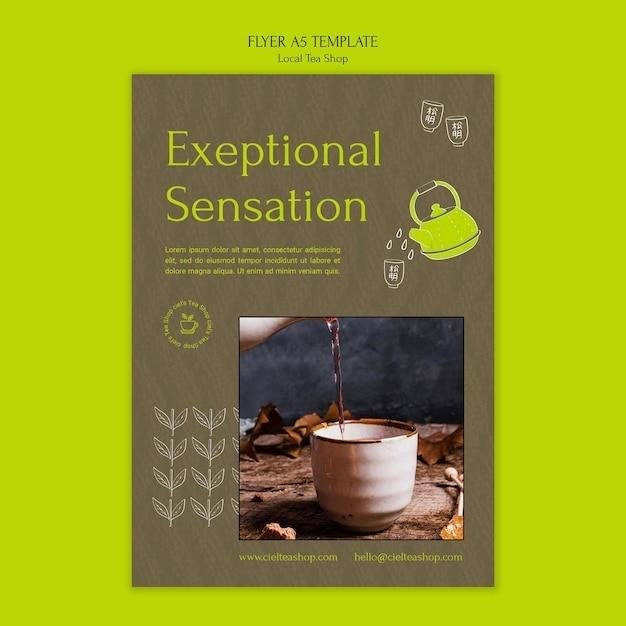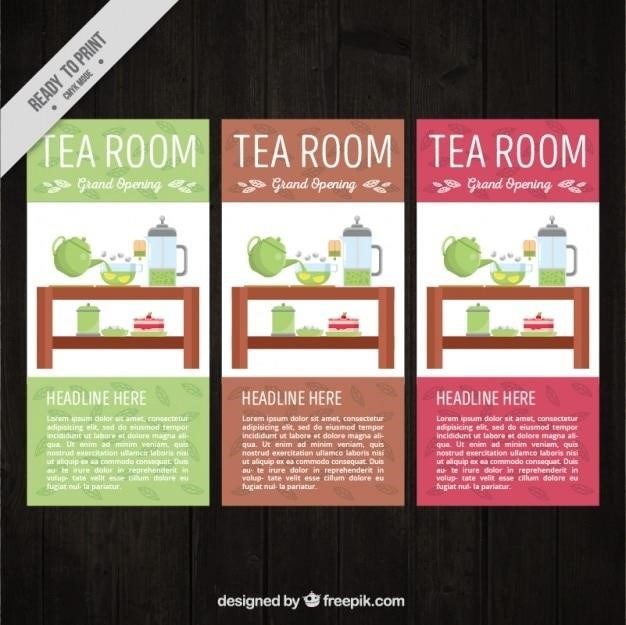Understanding the TEAS Exam
The Test of Essential Academic Skills (TEAS) is a standardized exam used by nursing schools and allied health programs to assess applicants’ readiness for their rigorous curricula. Free practice tests and study guides are widely available online in PDF format to aid preparation. These resources often include sample questions and answer explanations. Successful preparation significantly improves performance.
TEAS Scoring⁚ Total and Content Area Scores
Your TEAS score report provides a comprehensive assessment of your performance across various academic areas. It presents three key scores⁚ a Total Score, representing your overall performance; and Content Area Scores, reflecting your proficiency in Reading, Math, Science, and English Language Usage. Each score ranges from 0 to 100. Importantly, the Total and Content Area Scores are weighted to account for question difficulty; more challenging questions carry greater weight in the final calculation. This ensures a fair and accurate representation of your abilities. Understanding the scoring system is crucial for interpreting your results and identifying areas needing improvement. Many free TEAS practice tests available online, often in PDF format, offer score reports that mimic the actual exam’s scoring mechanism. These practice tests provide valuable insights into your strengths and weaknesses, guiding your study efforts.
Proctored Testing Environment
The TEAS exam is always administered under proctored conditions, regardless of whether you take it online, at your school, or at a designated testing center. This strict proctoring ensures the security and fairness of the examination process for all test-takers. Proctors monitor test-takers throughout the exam to prevent cheating and maintain the integrity of the assessment. The proctored environment minimizes distractions and promotes a focused testing experience. While practicing with free TEAS practice tests (often available as PDFs), remember that the actual testing environment demands concentration and adherence to specific regulations. Familiarity with the rules and the controlled atmosphere is vital for success on the official TEAS exam. Understanding the proctoring procedures reduces anxiety and allows you to focus on demonstrating your knowledge and skills effectively.

Accessing TEAS Practice Questions
Numerous websites and resources offer free TEAS practice questions, often available as downloadable PDFs. These PDFs frequently include sample questions mirroring the actual exam’s format and content, providing valuable preparation.
Free TEAS Practice Test PDFs
Many websites offer free downloadable TEAS practice tests in PDF format. These PDFs often contain a significant number of practice questions, covering all four subject areas⁚ Reading, Mathematics, Science, and English Language Usage. The benefit of a PDF is the ability to print it out and work through the questions offline, simulating a real testing environment. Some PDFs provide detailed answer keys with explanations, enhancing learning and identifying areas requiring further attention. This allows for focused studying and improvement in weak areas. However, it is important to be discerning when selecting a free PDF; ensure the questions accurately reflect current TEAS content and difficulty. Look for reviews and recommendations to determine the quality and relevance of the practice test before committing your study time. Remember that supplementing free PDFs with other study materials can provide a well-rounded preparation strategy for the exam. The availability of free resources makes preparing for the TEAS exam significantly more accessible.
Online TEAS Practice Tests and Resources
Beyond downloadable PDFs, numerous websites and online platforms provide interactive TEAS practice tests. These online resources often offer a more realistic simulation of the actual exam experience, including timed sections and immediate feedback on answers. Many platforms provide detailed explanations for each question, helping you understand the reasoning behind correct and incorrect responses. Some online resources offer personalized study plans based on your performance on practice tests, adapting to your individual strengths and weaknesses. This adaptive learning approach can be highly effective for targeted study. In addition to practice tests, many online platforms offer supplementary learning materials such as study guides, video tutorials, and flashcards. The convenience and comprehensive nature of these online resources make them a valuable tool for TEAS preparation. However, be aware that some online resources may require a subscription or payment for access to all features. Carefully review the pricing and features of different platforms before making a decision.
Benefits of Using TEAS Practice Tests
Utilizing TEAS practice tests, whether in PDF or online formats, offers several key advantages for exam preparation; Firstly, they provide a realistic assessment of your current knowledge and skills, allowing you to identify areas needing improvement. This focused approach helps you allocate your study time efficiently, concentrating on weaker subjects. Secondly, practice tests familiarize you with the exam’s structure, question types, and time constraints. This reduces test anxiety by minimizing surprises on exam day. Repeated exposure to similar question formats enhances your ability to quickly process information and choose the correct answer. Moreover, many practice tests include detailed answer explanations, enhancing your understanding of concepts and improving your problem-solving skills. By analyzing your mistakes, you can learn from errors and avoid repeating them. Regularly using practice tests helps build confidence and improves your overall performance by creating a consistent pattern of review and practice. Ultimately, well-executed practice is crucial for success.
TEAS Practice Test Content
Many free and paid TEAS practice tests are available online as PDFs. These tests cover Reading, Math, Science, and English Language Usage, mirroring the actual exam’s content and question styles. They often include answer keys and detailed explanations.
Sample Questions and Question Types
Numerous websites and resources offer free TEAS practice tests in PDF format. These PDFs typically contain a diverse range of question types designed to mimic the actual TEAS exam. Expect multiple-choice questions, which constitute the majority of the test. These questions assess your understanding of various concepts across the four subject areas⁚ Reading, Mathematics, Science, and English Language Usage. Some PDFs may also include fill-in-the-blank or short-answer questions, though these are less common. The complexity and style of questions vary across different practice tests, reflecting the diverse range of difficulty levels encountered on the real TEAS exam. Careful review of these sample questions will greatly enhance your familiarity with the test format, allowing for effective time management and strategic approach during the actual examination. Understanding the different question types is crucial for effective preparation. Remember to analyze the answer explanations provided with the practice questions to identify areas needing improvement.
Subject Area Coverage⁚ Reading, Math, Science, English
Free TEAS practice test PDFs comprehensively cover the four main subject areas of the actual exam⁚ Reading, Mathematics, Science, and English Language Usage. The Reading section typically assesses comprehension skills through passages followed by multiple-choice questions. Mathematics questions range from basic arithmetic to algebra and geometry problems, demanding proficiency in various mathematical concepts. The Science section tests knowledge of fundamental biological, chemical, and physical concepts. Expect questions on human anatomy, basic chemistry, and physics principles. Finally, the English Language Usage section evaluates grammar, vocabulary, and sentence structure skills, requiring a strong command of the English language. The proportion of questions dedicated to each subject area might vary slightly across different practice tests but generally reflects the weighting of each section in the official TEAS exam. Using these PDFs ensures thorough preparation across all four domains.

Preparing for the TEAS Exam
Effective TEAS preparation involves utilizing diverse resources, including practice tests in PDF format. These offer valuable insights into question types and subject matter coverage. Strategic study plans and time management are also crucial for success.
Utilizing Practice Tests for Focused Study
Strategically incorporating TEAS practice tests into your study plan is paramount. Free, downloadable PDFs offer a wealth of sample questions mirroring the actual exam format. These resources allow for focused review of specific content areas, pinpointing weaknesses and strengths. By identifying areas needing improvement, you can allocate more study time effectively. Analyzing incorrect answers and understanding the rationale behind correct choices enhances comprehension and retention. Regular practice tests simulate the exam environment, reducing test anxiety and improving time management skills crucial for success on the actual TEAS. Remember to utilize the answer keys and explanations provided to maximize learning from each practice session. Consistent practice builds confidence and reinforces learned concepts, improving your overall performance.
Effective Study Strategies and Time Management
Effective preparation for the TEAS exam requires a well-structured study plan. Begin by creating a realistic schedule that allocates sufficient time for each subject area based on your individual strengths and weaknesses. Prioritize topics you find most challenging, dedicating extra time for focused study. Utilize various learning techniques, such as flashcards, practice questions (including those found in free online PDFs), and review sessions with study partners. Active recall methods, like self-testing and explaining concepts aloud, are highly effective for knowledge retention. Regular breaks and adequate rest are crucial for preventing burnout and maintaining concentration. Remember to simulate test conditions by taking full-length practice tests under timed constraints. This helps improve time management skills and reduces test-day anxiety.
Additional Resources⁚ Study Guides and Prep Materials
Beyond free online resources like TEAS practice question PDFs, numerous commercial study guides and preparation materials are available to enhance your studying. These resources often provide comprehensive subject reviews, additional practice questions, and detailed explanations. Some offer personalized study plans or adaptive learning platforms to cater to individual needs. Consider investing in a reputable study guide that aligns with the latest TEAS exam content and format. Many publishers offer both physical books and online access, allowing for flexible learning. Explore options from well-known test preparation companies or educational publishers specializing in nursing school entrance exams. Remember to compare features, prices, and customer reviews before making a purchase to ensure a suitable fit for your learning style and budget.
Interpreting Your Results
Analyze your TEAS practice test results to pinpoint strengths and weaknesses. Focus subsequent study on areas needing improvement for optimal exam performance.
Understanding Your Score Report
Your TEAS score report provides crucial insights into your performance across four content areas⁚ Reading, Mathematics, Science, and English Language Usage. Each section receives a separate score, ranging from 0 to 100, reflecting your proficiency in each subject. A total score, representing your overall performance, is also provided. Understanding these scores is essential. Remember, the TEAS isn’t a pass/fail exam; scores are used by individual programs to assess readiness for their curriculum. Higher scores often increase the likelihood of admission. Review your score report carefully, noting both your strengths and areas where improvement is needed. Use this information to guide your further studies and focus on the sections where you struggled most. Don’t be discouraged by lower scores; they simply highlight areas requiring more attention. Use the feedback to refine your study strategies and boost your confidence for the actual exam. Many free online resources, including practice tests and study guides, can assist you in improving your scores.
Identifying Strengths and Weaknesses
Analyzing your performance on TEAS practice tests is crucial for effective study. Begin by reviewing your score report, paying close attention to your individual subject scores. Identify the areas where you excelled; these are your strengths. Understanding your strengths builds confidence and reinforces effective study habits. Next, pinpoint the areas where you struggled; these are your weaknesses. Don’t shy away from confronting your weaknesses; addressing them directly will improve your overall performance. Once you’ve identified your weaknesses, dedicate extra time and effort to those specific subjects. Utilize additional resources, such as focused study guides or targeted practice questions, to address those weak areas. Consider seeking help from tutors or study groups for personalized support. Remember, consistent effort and focused practice will significantly improve your weaknesses and boost your overall TEAS score. Regularly reviewing your progress helps track improvement and refine your study strategies for optimal success.


